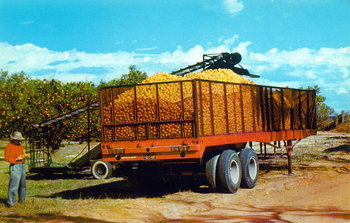|
| |
Overexploitation is overuse of a renewable resource to the point that it is no longer renewable or its quantity drops dramatically for a sustained period of time. As an economic phenomenon, overexploitation is costly as an inefficient use of resources. For example, overfishing in a single year can lead to a depleted stock for decades, resulting in collapse of an industry and the displacement of communities. It can also lead to the complete extinction of a species.
|
Type | | Definition | Overuse of a renewable resource to the point that it no longer renews as it once did. | Examples | The complete collapse of Atlantic cod stocks from over fishing that peaked at 800,000 per year in the early 1970s with close to zero catches by 1992. They have failed to recover even with the cessation of fishing.
The large scale population decline experienced by Eastern Island after the island was completely deforested due to over-harvesting in the 17th century resulting in soil erosion, famine and civil war. The forests have never recovered and the island's population remains below its 17th century peak today. | Related Concepts | |
Economics
This is the complete list of articles we have written about economics.
If you enjoyed this page, please consider bookmarking Simplicable.
© 2010-2023 Simplicable. All Rights Reserved. Reproduction of materials found on this site, in any form, without explicit permission is prohibited.
View credits & copyrights or citation information for this page.
|






























